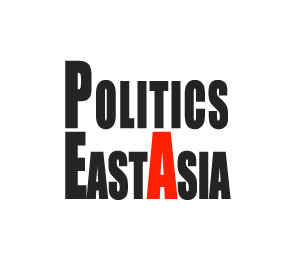Publications
This short overview of the 2016 special issue of Asiascape: Digital Asia introduces the theme 'digital play' and discusses how digital technologies, gaming practices, popular culture, and contemporary political and economic dynamics are intricately intertwined in the Asian region.
This article examines how Chinese websites shape online discourse on two Japan issues (the Nanjing Massacre and the East China Sea conflict), and what these sites can tell us about the leadership’s strategy for managing digital communication. It finds that the authorities apply a Leninist mass-communication logic to the web, turning the internet into an 'info-web' that brings digital media into the fold of China’s ‘traditional’ mass-media system.
Where might we find ‘Digital Asia’? This article examines the online presence of higher education institutions in Greater China, showing how it can be fruitful to search for 'Digital Asia' in its communication networks and digital interfaces.
This introduction to the 2015 special issue of the academic journal Asiascape: Digital Asia discusses the contributions to the special issue theme "Where Is Digital Asia?"
This article examines current streams of Chinese International Relations theorising and asks what these approaches to world order can contribute to our understanding of the territorial disputes in the East China Sea.
This book chapter, co-authored with Jay Hwang, analyses how China’s propaganda specialists have used popular entertainment to frame China’s historiography by invoking discourses of modernization and a 'Road to Revival'.
This book chapter asks what visions of the world came together at the Shanghai Expo, how they were formed, and what role the Chinese authorities played in framing the event.
This article, co-authored with Jay Hwang, examines the ways in which various cultural products present the Sichuan earthquake and asks what meanings national crises have in the Chinese discourse on political legitimacy.
This paper examines the theme pavilions at the Shanghai World Exposition - a large-scale political communication effort that the Chinese government initiated as a core part of its public relations strategy for the 21st century.
This article analyzes how the Chinese Communist Party shifted its legitimacy discourse during the 60-year anniversary of the People’s Republic of China.
Asiascape: Digital Asia is a peer-reviewed, academic journal that explores the political, social, and cultural impact of digital media in Asia. Bringing together inter- and multi-disciplinary research in the social sciences, arts, media and communication studies, information and computer sciences, and area studies, the journal examines the role that information, communication, and digital technologies play in Asian societies, as well as in intra-regional and transnational dynamics.
In Visual Political Communication in Popular Chinese Television Series, Florian Schneider analyses political discourses in Chinese TV dramas, the most popular entertainment format in China today. The book shows that despite their often nationalist stories of glorious emperors and courageous officials, such programmes should not be mistaken for official propaganda. Instead, the highly didactical messages of such series are the outcome of complex cultural governance practices, which are influenced by diffuse political interests, commercial considerations, viewing habits, and ideological assumptions. Florian Schneider argues that these interlinking factors lead to a highly restrictive creative environment and to conservative entertainment content that ultimately risks creating precisely the kind of passive masses that Chinese media workers and government officials are trying so hard to emancipate.

